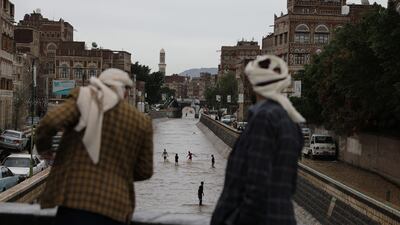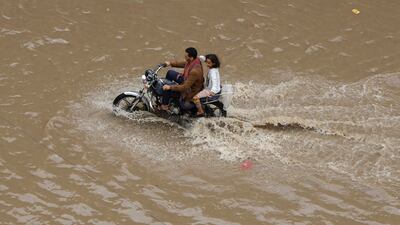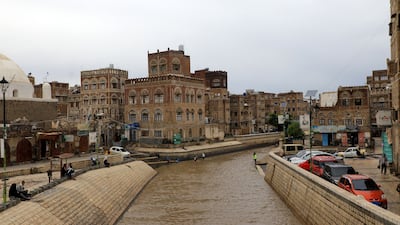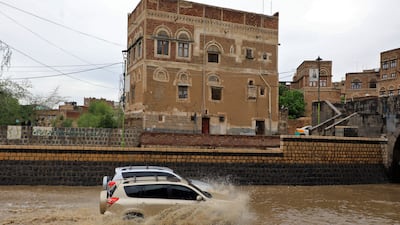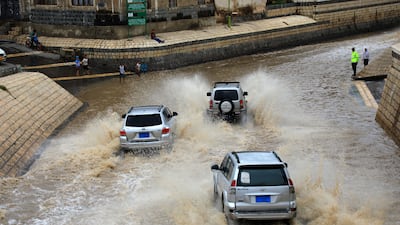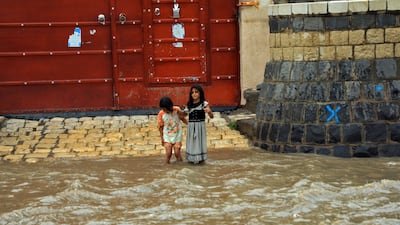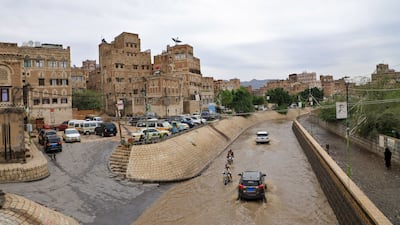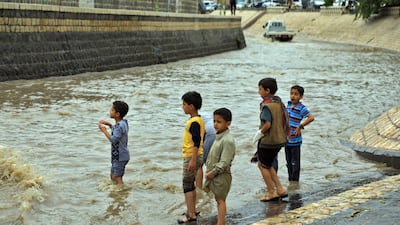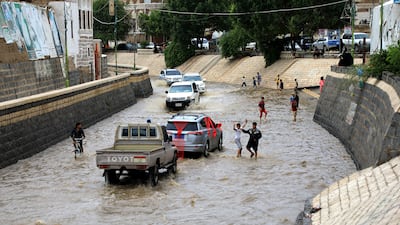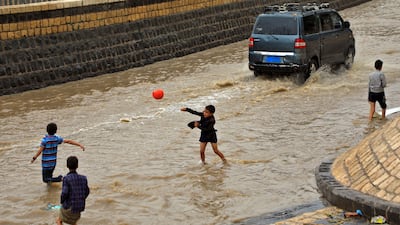Flash floods in parts of Yemen controlled by the Houthi rebels have killed at least 17 people, two including children, over the past 12 days.
Residents of the capital Sanaa and the south-western governorates of Ibb and Dhamar were wading knee-deep in water, as flooding caused traffic jams, reports by Houthi-run media showed.
On Monday, the Houthi-run Saba News agency said six people were killed in the governorate of Raymah.
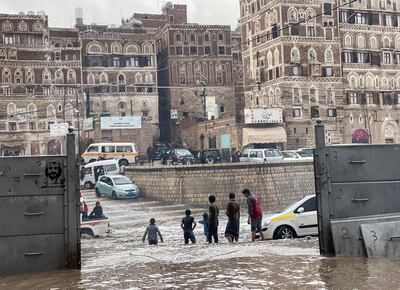
Sunday was the deadliest day, when two girls, aged 6 and 11, were killed after their three-storey home in Sanaa partially collapsed as a result of heavy rains and flooding. Their father was injured but the rest of the family survived.
On the same day, six people died in Dhamar after their vehicle was swept away in flash floods. Five of the bodies were retrieved and one remains missing.
Also on Sunday, three people from the same family were killed in the Houthi-run capital Sanaa after their home collapsed.
The country recorded its first flood-related death since the turbulent weather began on July 14, in the oil-rich eastern city of Marib, where 2.2 million internally displaced people live. Two people were killed, displacement camps and mud huts were destroyed and others were trapped in their homes. A security official was among those who died that day, Saba reported.
Only rudimentary methods of draining flood water were available to provide relief, as Houthi officials blamed poor urban planning for the water build-up.
"We haven't seen as much rain as this since I was born," local resident Mosheer Hasbawi told Associated Press.
Yemen is in its eighth year of war since the Houthis took over the capital Sanaa in 2014, and the Saudi-led coalition intervened a year later to restore the government to power.
Since then, Sanaa and Houthi-controlled territory has had little improvement in public sector infrastructure like roads, sewage and drainage facilities.
